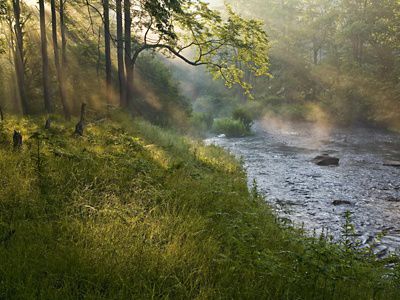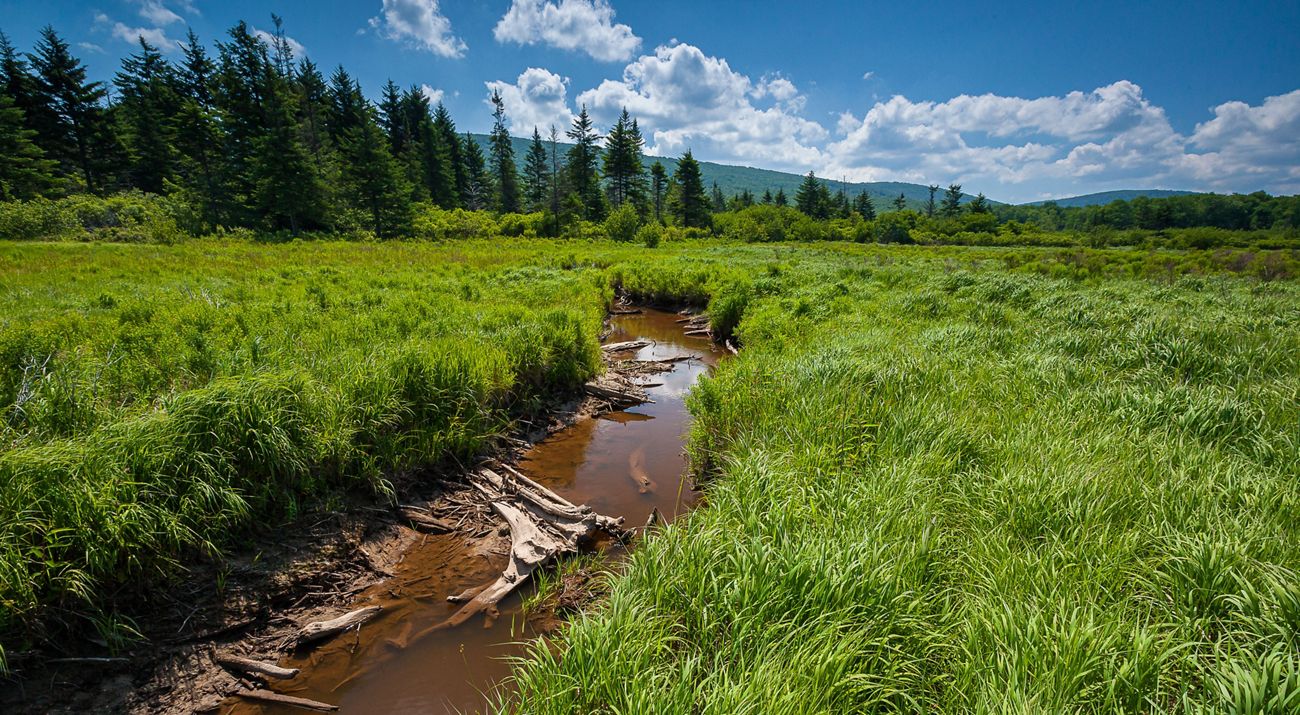Canaan Valley National Wildlife Refuge Adds Nearly 2,000 Acres
Acquisition of “Big Cove” conserves biodiversity and will open new recreational opportunities.
Media Contacts
-
Erica Byrd
Phone: 304-641-7847
Big Cove—the heart of one of the most intact landscape corridors and biodiversity hotspots in West Virginia—is now conserved in perpetuity for the benefit of wildlife and people as part of Canaan Valley National Wildlife Refuge.
Increasing access to public lands and waters is a central component of the Biden administration’s approach to conservation under the America the Beautiful initiative. Through a partnership with The Nature Conservancy (TNC), the U.S. Fish and Wildlife Service acquired the land in January 2024, using funds from the Land and Water Conservation Fund. TNC originally purchased the 1,971-acre tract from Western Pocahontas Properties in 2023.
Big Cove sits at the northern end of the Canaan Valley National Wildlife Refuge and to the west of the Dolly Sods Wilderness. Its planned acquisition has been part of a decades-old, state-wide vision to protect those lands for biodiversity and that are home to migratory birds and threatened and endangered species normally located much farther north in New England and Canada. Conservation of this property will help protect rare species and wildlife habitat; increase public access to hunting, fishing and recreation; and help secure the area’s clean water supply through increased protection of the largest intact wetlands complex in West Virginia.
Quote: Scott Kahan
By working with partners like The Nature Conservancy, we can conserve key habitats that will prove vital as wildlife and people face the impacts of a changing climate.
“We are excited to add Big Cove to Canaan Valley National Wildlife Refuge,” said Scott Kahan, northeast regional chief for the National Wildlife Refuge System. “By working with partners like The Nature Conservancy, we can conserve key habitats that will prove vital as wildlife and people face the impacts of a changing climate.”
The Canaan Valley and Tucker County play important roles in the tourism and recreation sector in the state. Protecting this key tract secures public access and will provide increased recreational opportunities for Canaan Valley residents and visitors.
The refuge expansion also has a positive impact on the local economy. The country’s 570 national wildlife refuges contribute $3.2 billion per year to local economies and support more than 41,000 jobs, according to the service’s report Banking on Nature.

“With the right balanced vision, development and conservation do not have to be in conflict,” says TNC West Virginia Executive Director Thomas Minney. “In fact, they are very complementary in ways that benefit the residents and visitors of Tucker County.”
The refuge, TNC and other partners are planning trail development and enhancement in the western portion of the property. The acquisition will enable access to an additional 2,412 acres, including previously unreachable parts of the refuge, which the service plans to open to hunting and wildlife viewing. The added acres will be managed in accordance with Canaan Valley National Wildlife Refuge’s current Comprehensive Conservation Plan.
The refuge will mark 30 years of conservation in the valley this summer.
“We are very excited to see this project come to fruition,” said Canaan Valley National Wildlife Refuge Manager Bob Frank. “It’s the best way we can think of to celebrate the refuge’s 30th anniversary.”
The Nature Conservancy is a global conservation organization dedicated to conserving the lands and waters on which all life depends. Guided by science, we create innovative, on-the-ground solutions to our world’s toughest challenges so that nature and people can thrive together. We are tackling climate change, conserving lands, waters and oceans at an unprecedented scale, providing food and water sustainably and helping make cities more resilient. The Nature Conservancy is working to make a lasting difference around the world in 81 countries and territories (40 by direct conservation impact and 41 through partners) through a collaborative approach that engages local communities, governments, the private sector, and other partners. To learn more, visit nature.org or follow @nature_press on X.
